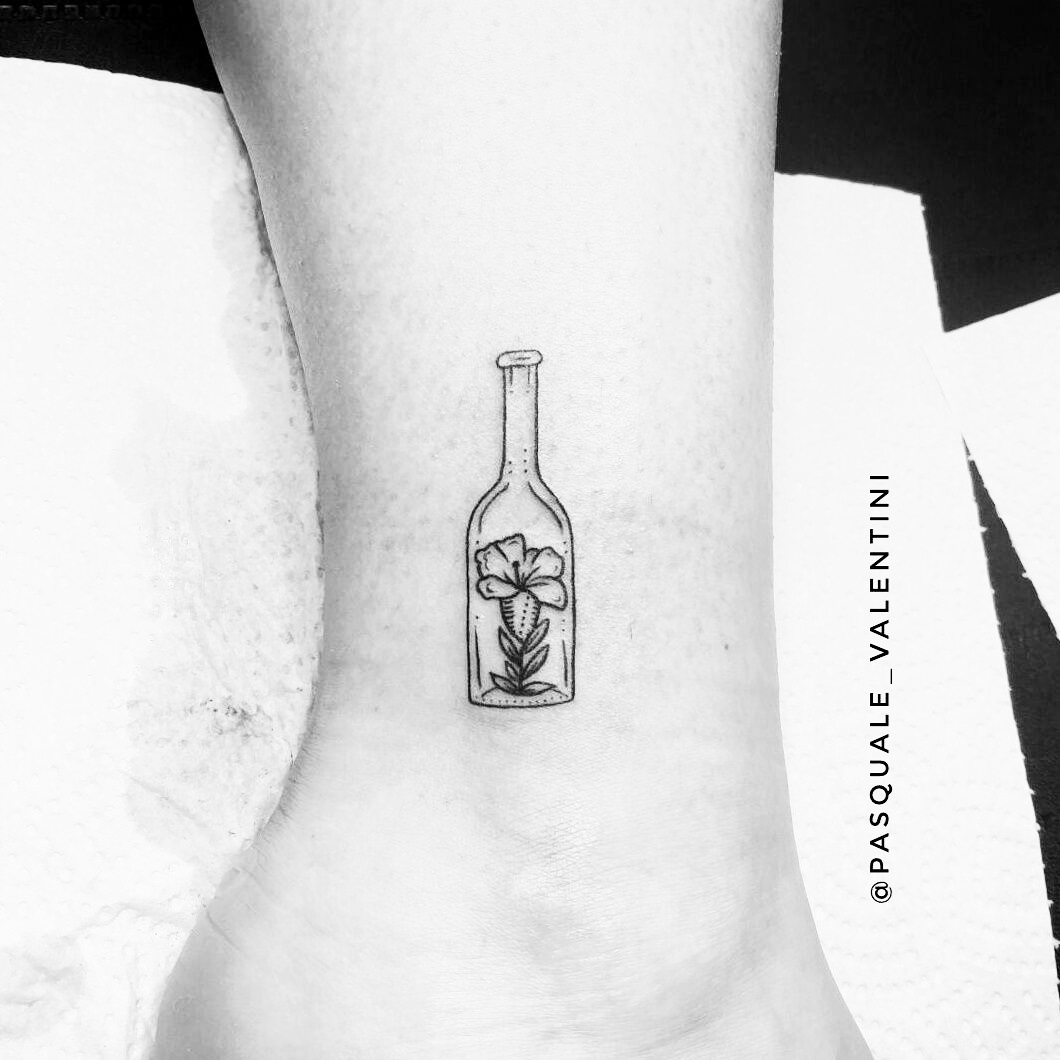Tattooing under 18 has become a highly debated topic in recent years, with both parents and teenagers seeking clarity on the legal and ethical boundaries surrounding this practice. While tattoos have grown in popularity as a form of self-expression, the laws regulating tattooing for minors vary significantly across regions. Understanding these regulations and the potential consequences of underage tattooing is essential for anyone considering this permanent decision.
As society evolves, so do perspectives on body art. However, the permanence of tattoos makes it crucial to approach the subject with caution, especially when it comes to minors. Many countries and states impose strict age restrictions to protect young individuals from making decisions they may later regret. This article delves into the complexities of tattooing under 18, offering insights into legal frameworks, ethical considerations, and the long-term implications of getting inked at a young age.
Through expert opinions, real-life examples, and a detailed exploration of the laws governing tattooing under 18, this article aims to provide valuable information for parents, teenagers, and tattoo artists alike. Whether you're considering getting a tattoo or are responsible for guiding someone who is, this guide will equip you with the knowledge needed to make informed decisions.
Read also:Delight In Every Bite The Joy Of Fruit Basket Banana
What Are the Legal Restrictions on Tattooing Under 18?
Legal restrictions surrounding tattooing under 18 vary widely depending on the country, state, or even city. In many jurisdictions, the minimum age for getting a tattoo is 18, with some exceptions allowing parental consent. However, these exceptions are rare and often subject to strict guidelines. For instance, in the United States, federal law does not regulate tattooing, leaving it up to individual states to establish their own rules. Some states, like California and Texas, prohibit tattooing minors altogether, while others allow it with parental permission.
Internationally, the situation is equally diverse. In the United Kingdom, for example, it is illegal to tattoo anyone under 18, regardless of parental consent. Similarly, Australia enforces strict age limits, with most states requiring individuals to be at least 18 years old. These variations highlight the importance of understanding local laws before proceeding with a tattoo, as violating these regulations can result in legal consequences for both the minor and the tattoo artist.
How Do Tattoo Shops Ensure Compliance with Tattooing Under 18 Laws?
Tattoo shops play a crucial role in enforcing legal restrictions on tattooing under 18. Reputable studios adhere to strict protocols to ensure compliance with local regulations. These protocols typically include verifying the age of the client through government-issued identification and obtaining written parental consent where applicable. Additionally, many tattoo artists undergo training to recognize signs of coercion or peer pressure, as these can influence minors to make impulsive decisions.
Beyond legal compliance, ethical considerations also guide tattoo shops in their interactions with young clients. Some studios have implemented policies that discourage tattooing minors altogether, regardless of the law. These policies reflect a commitment to protecting young individuals from the potential regret and societal stigma associated with underage tattooing. By prioritizing the well-being of their clients, tattoo artists contribute to a safer and more responsible tattoo culture.
Why Is Tattooing Under 18 Considered Risky?
One of the primary concerns surrounding tattooing under 18 is the risk of regret. Adolescence is a period of rapid change, both physically and emotionally. During this time, individuals are still developing their sense of identity and may lack the maturity needed to make lifelong decisions. A tattoo obtained at a young age can become a source of regret as personal preferences and values evolve over time.
Moreover, tattoos can impact future opportunities, particularly in professional settings where body art may be viewed unfavorably. While attitudes towards tattoos are becoming more accepting, certain industries still maintain strict dress codes that prohibit visible tattoos. For young individuals just starting their careers, this can pose significant challenges. Understanding these potential consequences is vital for anyone considering tattooing under 18.
Read also:Wallside Windows Michigan Your Ultimate Guide To Energyefficient Home Solutions
What Are the Health Risks Associated with Tattooing Under 18?
Health risks are another critical factor to consider when discussing tattooing under 18. The process of tattooing involves piercing the skin with needles, which can lead to infections if proper hygiene practices are not followed. Minors may be more susceptible to these risks due to their developing immune systems. Furthermore, the healing process for tattoos can be prolonged and uncomfortable, requiring careful aftercare to ensure proper healing.
In addition to infections, allergic reactions to tattoo ink are also a concern. Some individuals may experience adverse reactions to certain pigments, leading to irritation, swelling, or even scarring. While these reactions are rare, they can be more severe in younger individuals whose skin is still maturing. For these reasons, it is essential for minors to fully understand the health implications of tattooing before proceeding.
Is It Possible to Remove a Tattoo Obtained Under 18?
While tattoo removal is possible, it is a costly and often painful process. Laser tattoo removal is the most common method used to eliminate unwanted ink, but it requires multiple sessions and can be expensive. For young individuals who regret their tattoos, the financial burden of removal can be significant. Additionally, the effectiveness of tattoo removal varies depending on factors such as the type of ink used and the location of the tattoo.
It is also worth noting that tattoo removal does not guarantee complete eradication of the ink. In some cases, faint traces of the tattoo may remain, requiring additional sessions to achieve the desired result. For these reasons, it is advisable for minors to carefully consider the permanence of tattoos before making a decision that could have lasting consequences.
Understanding the Psychological Impact of Tattooing Under 18
Tattoos are more than just a form of self-expression; they carry deep psychological significance. For many individuals, tattoos serve as a way to commemorate important life events, express personal beliefs, or connect with cultural heritage. However, when obtained at a young age, tattoos can also become a source of psychological distress. Adolescents may feel pressured to conform to peer expectations or societal trends, leading them to make decisions they later regret.
Research has shown that regret over tattoos is more common among individuals who obtained them at a younger age. This regret can manifest in various ways, including feelings of embarrassment, shame, or dissatisfaction with one's appearance. In some cases, it can even contribute to mental health issues such as anxiety or depression. By understanding the psychological implications of tattooing under 18, individuals can make more informed decisions about their body art.
What Should Parents Know About Tattooing Under 18?
Parents play a crucial role in guiding their children through the decision-making process surrounding tattooing under 18. It is important for parents to educate themselves on the legal, ethical, and health implications of tattoos before discussing the topic with their children. Open and honest communication is key to helping young individuals understand the potential consequences of their choices.
Parents can also encourage their children to explore alternative forms of self-expression that do not involve permanent alterations to their bodies. Temporary tattoos, henna designs, and body art that can be easily removed are excellent options for teenagers who want to experiment with different styles without committing to a lifelong decision. By providing supportive guidance, parents can help their children make choices that align with their long-term goals and values.
How Can Tattoo Artists Promote Responsible Practices in Tattooing Under 18?
Tattoo artists have a responsibility to promote responsible practices when it comes to tattooing under 18. This involves not only adhering to legal regulations but also considering the ethical implications of their work. Many artists choose to implement additional safeguards, such as conducting thorough consultations with young clients and their parents, to ensure that everyone involved is fully informed about the process and its consequences.
Some tattoo artists have taken proactive steps to discourage underage tattooing altogether. By refusing to ink minors, even with parental consent, these artists demonstrate a commitment to protecting young individuals from making decisions they may later regret. Through education and advocacy, tattoo artists can play a vital role in shaping a more responsible and informed tattoo culture.
Conclusion: Making Informed Decisions About Tattooing Under 18
Tattooing under 18 is a complex issue that requires careful consideration of legal, ethical, and personal factors. By understanding the regulations governing tattooing for minors, the potential health risks, and the psychological implications of this decision, individuals can make informed choices that align with their long-term goals and values. Whether you're a teenager contemplating your first tattoo or a parent guiding your child through this decision, taking the time to research and reflect on these factors is essential.
In conclusion, the decision to get a tattoo should never be taken lightly, especially when it involves minors. By prioritizing education, communication, and responsible practices, we can create a safer and more informed environment for everyone involved in the tattooing process. Remember, a tattoo is a permanent decision that can have lasting effects, so it's always best to proceed with caution and seek expert advice when necessary.
Table of Contents
- What Are the Legal Restrictions on Tattooing Under 18?
- How Do Tattoo Shops Ensure Compliance with Tattooing Under 18 Laws?
- Why Is Tattooing Under 18 Considered Risky?
- Is It Possible to Remove a Tattoo Obtained Under 18?
- Understanding the Psychological Impact of Tattooing Under 18
- What Should Parents Know About Tattooing Under 18?
- How Can Tattoo Artists Promote Responsible Practices in Tattooing Under 18?
- What Are the Health Risks Associated with Tattooing Under 18?
- Conclusion: Making Informed Decisions About Tattooing Under 18


